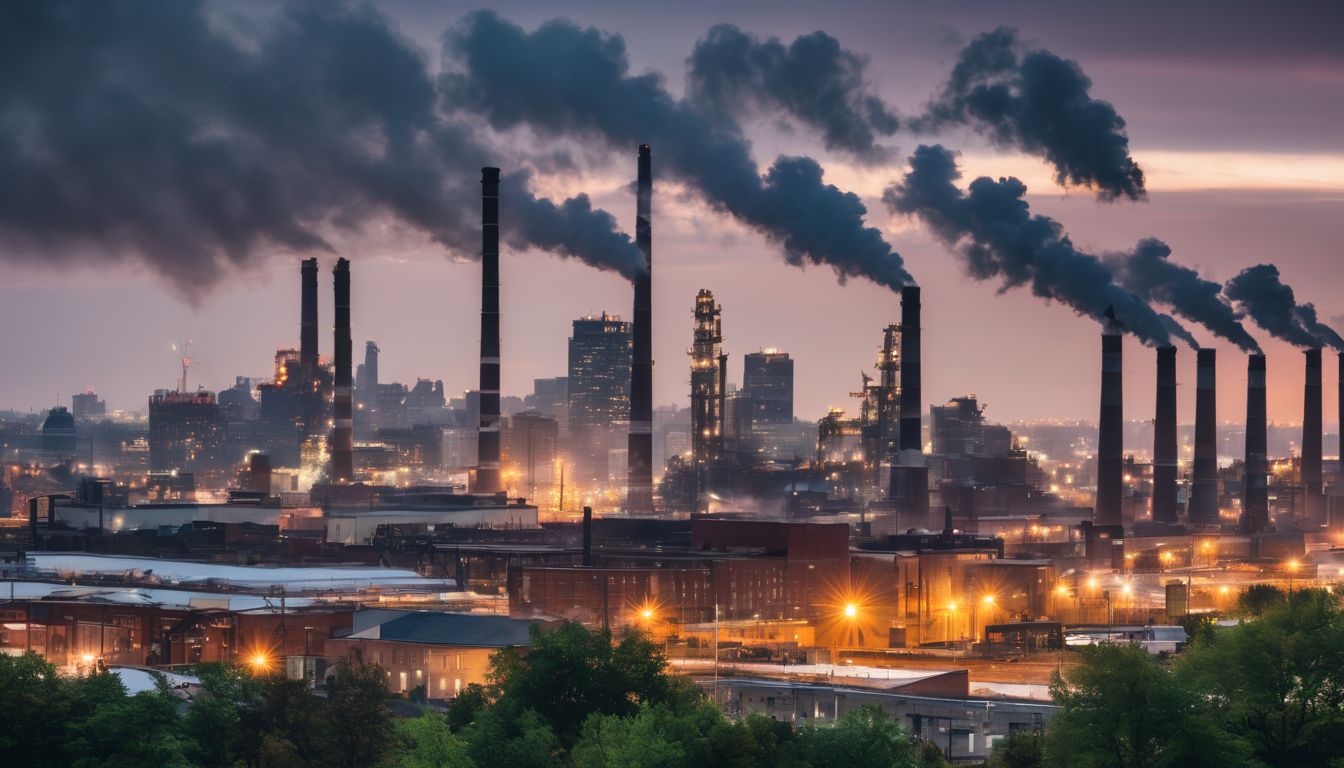We all recognize the heated debate in this country surrounding climate change, aka “global warming .” Some say the earth is warming, some say it is cooling, and others concede that it is changing but insist that it is not due to human action. What is interesting is how different groups frame the climate change debate in a manner that furthers their own self-interests. Information can be a very strong political tool. Special interests or political groups may be selective with the data they present to the public, or silence the voices of opposition to further their cause, but at what cost to the public and our environment? I fear politics alters facts and the free exchange of information in such a way that the public looks to politicians and special interest proponents for guidance rather than scientific information. When word choice, i.e. “global warming” vs. “climate change,” becomes more important than supporting science, I think we have a problem on our hands.
The Climate Change Debate: A major debate regarding climate change is whether it is anthropogenic (man-made) factors are leading to a changing climate. Problems arise when people pick and choose which facts to publicize along with silencing the other side of the debate. This practice occurs on both sides of the political spectrum and is often tied in with big businesses that financially benefit from certain national policies.
We will hear former Vice President Al Gore talk about the “effects of global warming,” but some people feel he ignores the other side of the debate or even silences scientists that propose counter theories. In 1994, Al Gore contacted CBS News’ program 60 minutes in an effort to discredit a respected scientist who disagreed with some of his claims. Gore argued that “only raving ideologues and corporate mouthpieces could challenge his green gospel.”2 His strategy failed, and he was criticized for his politicization of the issues. Ted Koppel said at the time, “’There is some irony in the fact that Vice President Gore, one of the most scientifically literate men to sit in the White House in this century, that he is resorting to political means to achieve what should ultimately be resolved on a purely scientific basis.” 3
Another example is the Bush Administration in 2007 falsely claiming that the United States was doing better than Europe in reducing greenhouse gas emissions.4 The claim is only true if one looks at a single greenhouse gas over a narrow timeframe. As soon as more gasses are analyzed over a greater period, the trend completely reverses. Similarly, the Bush administration was also accused of “attempting to control which climate scientists could speak with reporters, as well as editing scientists’ congressional testimony on climate science and key legal opinions,” according to a House Committee on Oversight and Government Reform report.5
More recently we can look to Governor of Minnesota, Tim Pawlenty (who is said to be considering running for President in 2012 under the Republican ticket), to blatantly ignore facts in favor of politics. Before considering a Presidential campaign, Pawlenty was by many metrics a very “green” Governor, who not only recognized climate change but wanted to fight it: “He called for Minnesota to lead on enacting a cap and trade system, so that other states and the US government might follow… He pioneered clean energy and green jobs programs.”6 Now he says he is unsure of what causes climate change and feels that national cap and trade programs would be “a disaster.”7 Dr. Joseph Romm, the Editor of the online publication of the nonprofit organization Center for American Progress Action Fund, went as far as to give Pawlenty the “gold medal for climate flip-flopping.”8 To see a strong Republican Presidential contender rescind his support of cap and trade and anthropogenic climate change is disheartening.
The Money: Discussing the politicization of climate change would not be complete without at least a brief nod towards the money which fuels much of the “debate” surrounding climate change and Kyoto global warming treaty , although the company denies any involvement in the matter.11
Thanks to U.S. State Department papers obtained under the Freedom of Information Act by Greenpeace, we can see that the U.S. “rejected Kyoto in part based on input from the [Global Climate Coalition].”12 The Global Climate Coalition (GCC) was a group of mostly United States businesses that opposed immediate action to reduce greenhouse gas emissions, and ExxonMobil was an integral part of this coalition. The State Department papers “further state that the White House considered Exxon among the companies most actively and prominently opposed to binding approaches [like Kyoto] to cut greenhouse gas emissions’.”13 ExxonMobil would not comment when these facts came to light, but it is clear from U.S. documents that they played an unfortunate role in the U.S. determination that signing such a climate treaty “would be unjustifiably drastic and premature.”14
I should further note that ExxonMobil has poured unknown sums of money into at least 124 organizations which all take a similar stance against climate change:15
These organizations take a consistent line on climate change: that the science is contradictory, the scientists are split, environmentalists are charlatans, liars or lunatics, and if governments took action to prevent global warming, they would be endangering the global economy for no good reason. The findings these organizations dislike are labeled ‘junk science.’ The findings they welcome are labeled ‘sound science.’16
This does not seem like the sort of company that should be consulting with the White House about whether the U.S. should sign the Kyoto Protocol—talk about conflicts of interest…
The Power of Words: In a recent University of Michigan study, 2,267 U.S. adult participants were questioned about their certainty regarding whether global climate change was a problem. Half were asked these questions using the terminology “global warming,” while the other half were asked these questions using the terminology “climate change.” “Overall, 74 percent of people thought the problem was real when it was called climate change, while about 68 percent thought it was real when called global warming.”18 Somewhat unsurprisingly, when looking at political think tanks, “conservative think tanks tend to call the phenomenon global warming, while liberal think tanks call it climate change.”19
The largest change in survey response due to word choice was seen in participants identifying as Republican. “While 60 percent of Republicans reported that they thought climate change was real, for example, only 44 percent said they believed in the reality of global warming.” “In contrast, about 86 percent of Democrats thought climate change was a serious problem, no matter what it was called.”20 This is an important realization that people should take into account when considering climate change.
Politics aside, I frankly think the term “global climate change” is more accurate, since some geographic regions will see more rain while other will see less, some areas will get hotter, but others will experience more extreme weather patterns. A complex climatic shift is affecting the globe, and “global warming” seems like an over simplification, but then again I am a believer in the effects of global warming … so maybe I’m just trying to convince you too!




